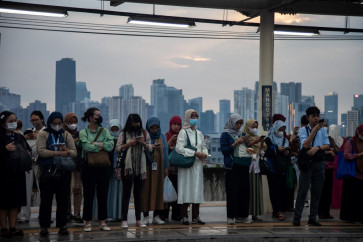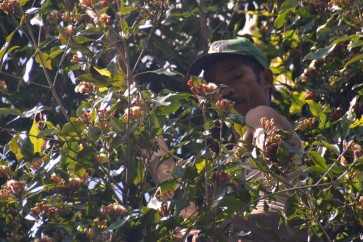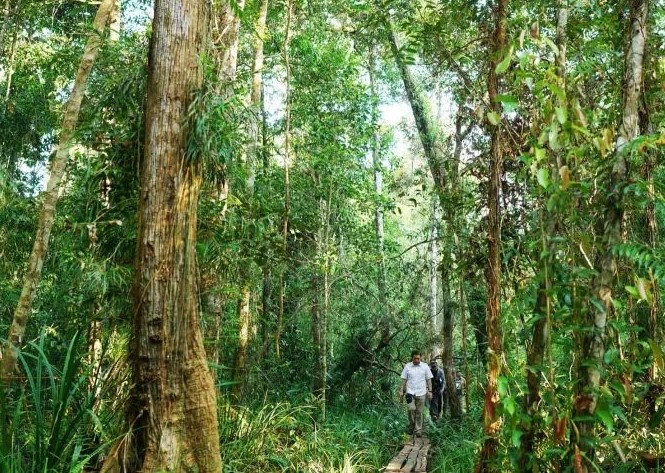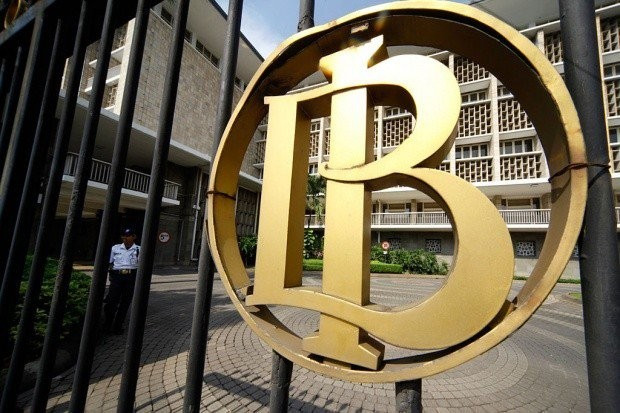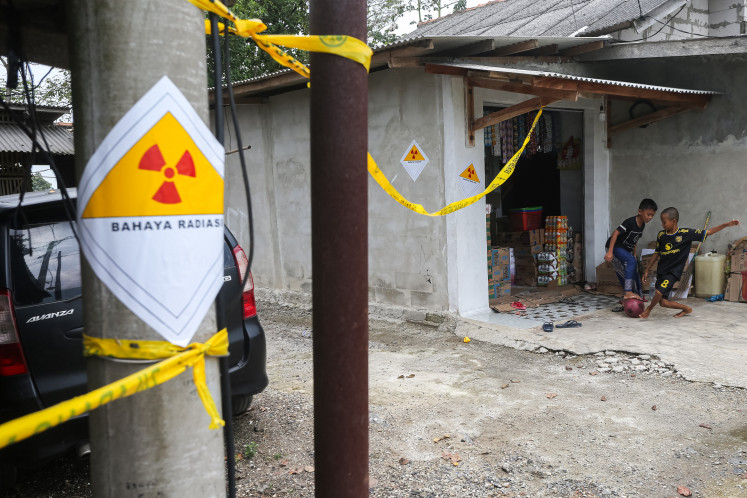Popular Reads
Top Results
Can't find what you're looking for?
View all search resultsPopular Reads
Top Results
Can't find what you're looking for?
View all search resultsSokola Institute helps indigenous people defend rights
Pengendum Tempung, a member of the Orang Rimba tribe in Jambi, gave credit to the Sokola Institute for helping him and other tribe members defend their rights through education
Change text size
Gift Premium Articles
to Anyone
P
engendum Tempung, a member of the Orang Rimba tribe in Jambi, gave credit to the Sokola Institute for helping him and other tribe members defend their rights through education.
Jambi’s forests have been preserved for the tribe — also known as Anak Dalam — since 2000 as stipulated in a decree issued by the Environment and Forestry Ministry. However, tribe members consistently face challenges posed by illegal logging and land conversion.
After learning how to read and write in Indonesian as well as learning about their legal rights from law experts, the tribe began to fight for the protection of Bukit Duabelas National Park (TNBD).
“We were campaigning for our traditional values,” Pengendum said, adding that the ministry had agreed to manage the 60,500-hectare area through seloko (customary law).
According to park management, the TNBD would be divided into several zones, which included Tali Bukit, Tanoh Huma and Tanoh Pasoron.
It was agreed that Tali Bukit will not be spoiled by humans or development, Tanoh Huma will be allocated for agricultural land and Tanoh Pasoron will be used as a cemetery by the Orang Rimba. There are around 4,000 members of the tribe who live on the edges of the national park.
“We want the Orang Rimba to play a leading role in the park’s management,” TNBD conservation center head Haidir told The Jakarta Post. Both the conservation center and the tribe have signed a memorandum of understanding (MoU) on the management of the park this year.
The Sokola Institute has also reached out to other indigenous tribes in 15 locations across the country to educate them about their rights and the need to protect the environment in which they live.
It spoke to residents of Wailago village, East Nusa Tenggara, about coral reef cultivation to restore the fish population amid threats posed by dynamite fishing. In Sumbercandi village, East Java, the institute educated residents about coffee so that they would not be exploited by potential business partners.
The institute’s schools are also located in Lamno, Aceh; Bukit Duabelas forest, Jambi; Pariaman, West Sumatra; Cianjur and Garut, West Java; Klaten, Central Java; Merapi and Bantul, Yogjakarta; Lamboya, East Nusa Tenggara; Bulukumba and Makassar, South Sulawesi; Halmahera, North Maluku and Asmat, Papua.
One of the institute’s founders, Butet Manurung, said it aimed to empower indigenous people. “We, urban citizens, usually push indigenous people to live like us. I think we should leave it to them. Let them choose their own way of life.”
In the case of the nomadic Orang Rimba, the government previously provided them with landed houses in the hope that they would change their lifestyle amid rampant land conversions.
Pengendum said living in a decent house was not the dream of the Orang Rimba.
“We only want the government to recognize our nomadic traditions,” he added.


